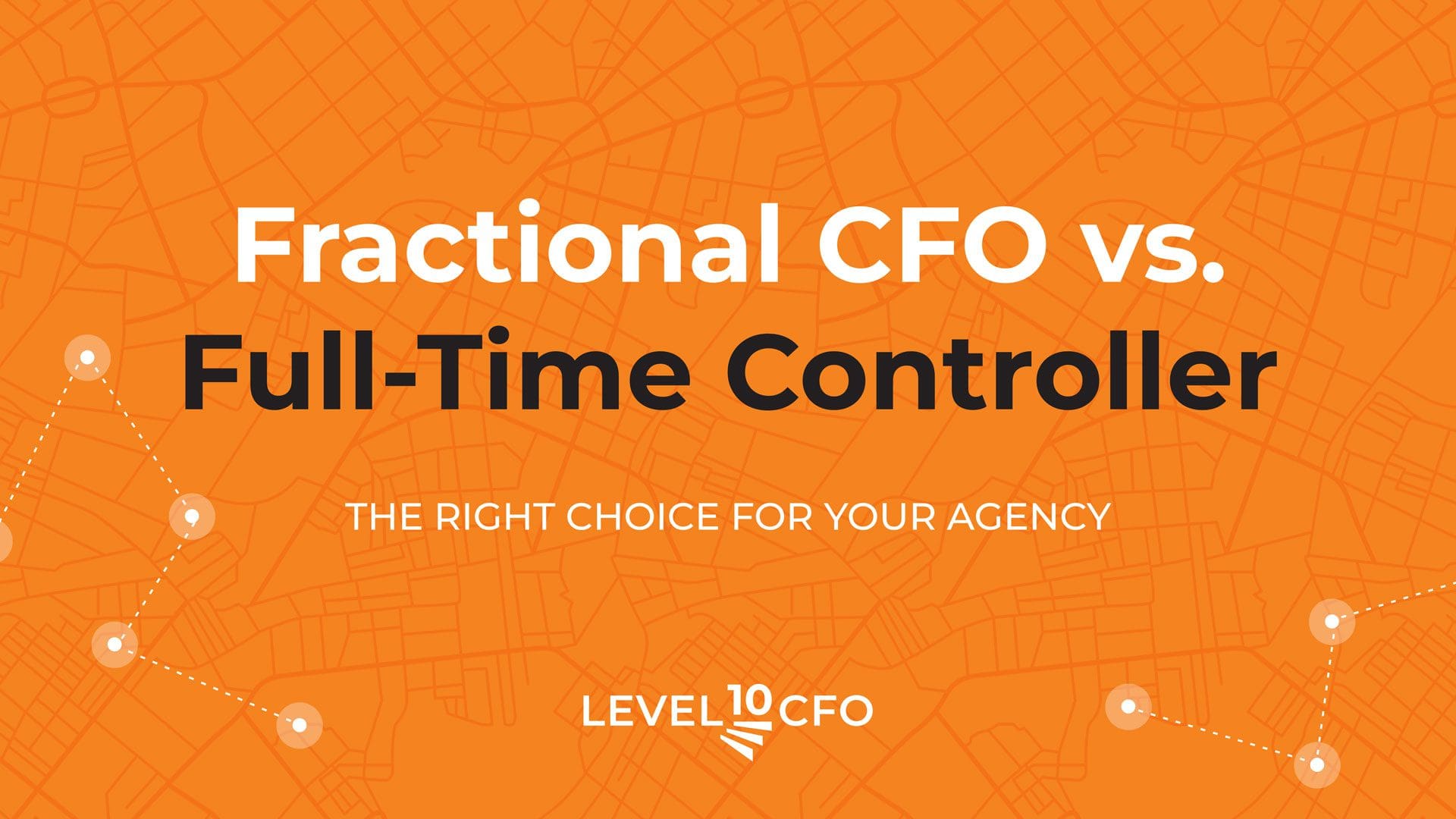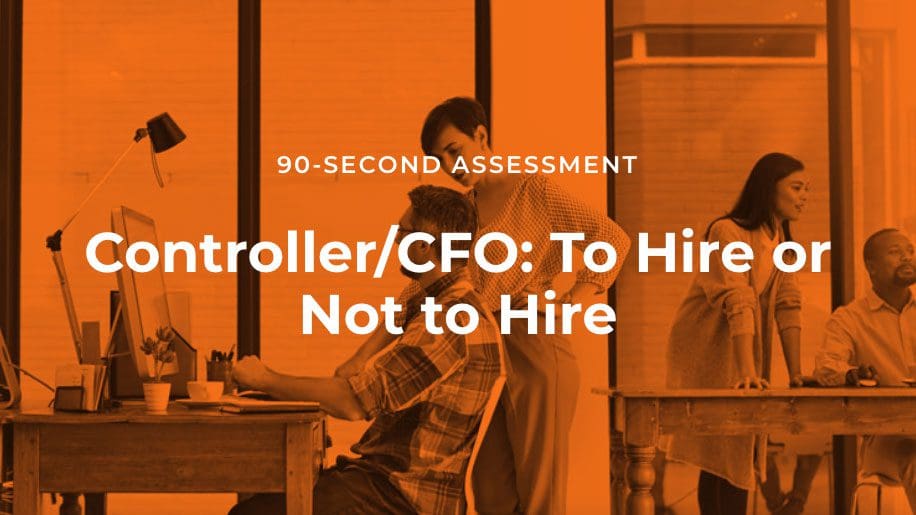Navigating the financial leadership structure in a business can be a complex task. Two roles often at the center of this discussion are the Controller and the Chief Financial Officer (CFO). Understanding the differences and similarities between these roles is key to helping you decide which one is right for your growing business. In this article, we’ll review the responsibilities of each position and when you might be in the right position to hire a new team member.
Understanding the Role of a Controller
What Does a Controller Do?
A Controller, often considered the head of the accounting department, is primarily responsible for managing the day-to-day financial operations of a company. They oversee the production of accurate and timely financial reports, ensure compliance with regulatory standards, and manage the company’s accounting staff.
Controllers are typically involved in tasks such as:
- Preparing financial statements and reports
- Ensuring compliance with accounting standards and tax laws
- Overseeing the company’s budgeting and forecasting
- Managing the accounting team and operations
When Do You Need a Controller?
A Controller becomes essential when your business has grown to a point where managing financial tasks outstrips the capabilities or time availability of your existing team. They bring a level of expertise and oversight that can help ensure the accuracy and integrity of your financial data.
Controller Salaries
The salary commanded by a Controller can vary widely depending on factors such as the size of the company, the industry, and the geographical location. However, according to data from the U.S. Bureau of Labor Statistics, the median annual wage for financial managers, which includes Controllers, is around $134,180. This figure can be significantly higher in larger corporations or in high-cost areas. It’s important to note that this is just the base salary. When you factor in additional costs such as bonuses, benefits, and taxes, the total cost of hiring a full-time Controller can be substantially higher.
Company Size and Revenue Considerations
The decision to hire a Controller is often tied to the size of the company, particularly its revenue. While there’s no hard and fast rule, a common benchmark is when a company’s annual revenue reaches the $15-$20 million mark. At this point, the financial management needs of the company often become too complex for the owner or existing team to handle effectively.
However, this is just a guideline. The decision to hire a Controller should also take into account other factors such as the complexity of your financial operations, the skill set of your existing team, and the amount of time you or your team can devote to financial management. Clearly, hiring a Controller is a significant decision that can have a major impact on your company’s financial health and growth. It’s a decision that should be made carefully, taking into account your company’s size, revenue, and specific needs.
Understanding the Role of a CFO
What Does a CFO Do?
A CFO, on the other hand, plays a more strategic role in your company. They are responsible for the overall financial strategy and direction of the business. While they also oversee the production of financial reports, their focus is more on using this data to drive strategic decisions and business growth.
CFOs are typically involved in tasks such as:
- Developing and implementing financial strategies
- Analyzing financial data to inform business decisions
- Managing financial risks
- Engaging with investors and stakeholders
When Do You Need a CFO?
A CFO becomes a necessity when a company reaches a level of size or complexity that requires a strategic approach to financial management. They are particularly valuable in situations where a company is looking to scale, raise capital, or navigate a significant business transition such as a merger or acquisition.
CFO Salaries
Similar to that of controllers, the salary of a CFO can vary significantly based on factors such as the size of the company, the industry, and the geographical location. The U.S. Bureau of Labor Statistics here shows that the median annual wage for top executives, which includes CFOs, is around $185,950. Of course, CFOs in larger corporations or in high-cost areas can command salaries that are significantly higher. Again, it’s important to note that this is just the base salary. When you factor in additional costs such as bonuses, benefits, and taxes, the total cost of hiring a full-time CFO is often substantially higher.
Company Size and Revenue Considerations
The decision to hire a CFO is often tied to the size of the company, particularly its revenue. A general rule of thumb suggests that when a company’s annual revenue crosses the threshold of $50-$100 million, the financial management tasks become too intricate for a Controller to manage single-handedly. This is the juncture where the strategic acumen of a CFO becomes indispensable.
However, this is merely a guideline and not a one-size-fits-all rule. The need for a CFO should also be assessed based on other parameters such as the intricacy of your financial operations, the capabilities of your existing team, and the strategic trajectory of your company. The decision to hire a CFO is a pivotal one, with far-reaching implications on your company’s financial roadmap and growth prospects. It warrants careful consideration, taking into account your company’s scale, revenue, and unique requirements.
Controller vs. CFO: The Key Differences
While both Controllers and CFOs play crucial roles in financial management, the key difference lies in their focus. To sum things up, a Controller’s role is more operational, focusing on the accurate reporting of past and present financial data. In contrast, a CFO takes a more strategic role, using financial data to drive future business decisions and growth.
The Alternative: Fractional CFOs
While both roles have their merits, not all businesses need or can afford a full-time Controller or CFO. This is where Fractional CFOs come into play. Fractional CFOs offer the strategic expertise of a CFO on a part-time or contract basis. They provide the strategic financial leadership that a CFO offers, while also overseeing the operational financial management that a Controller handles. Fractional CFOs are a versatile and cost-effective solution for businesses that need expert financial leadership but aren’t ready or able to commit to a full-time CFO or Controller. If you’d like to learn more, read about what services Level10 CFO offers or reach out to start a conversation.
Final Thoughts
Whichever route you end up taking, whether you should hire a Controller or a CFO ultimately depends on the size, complexity, and strategic needs of your company. We hope this article has been helpful in terms of shedding light on the roles of each. Best of luck as you continue to scale your business!


